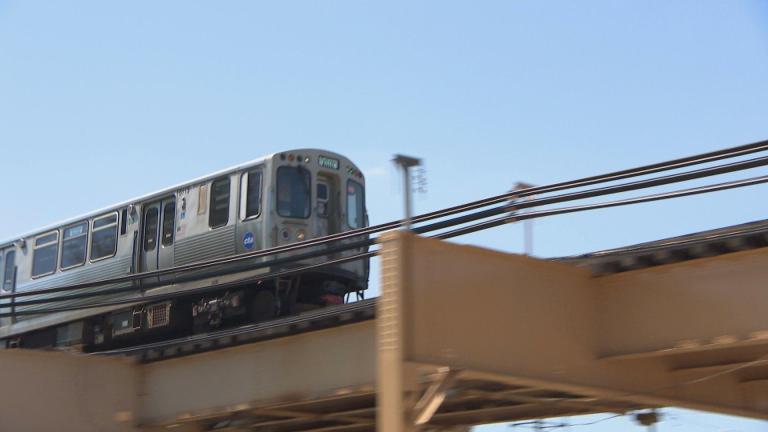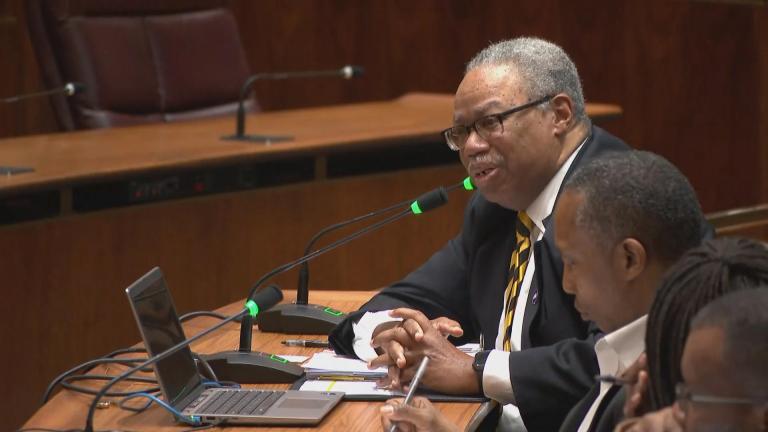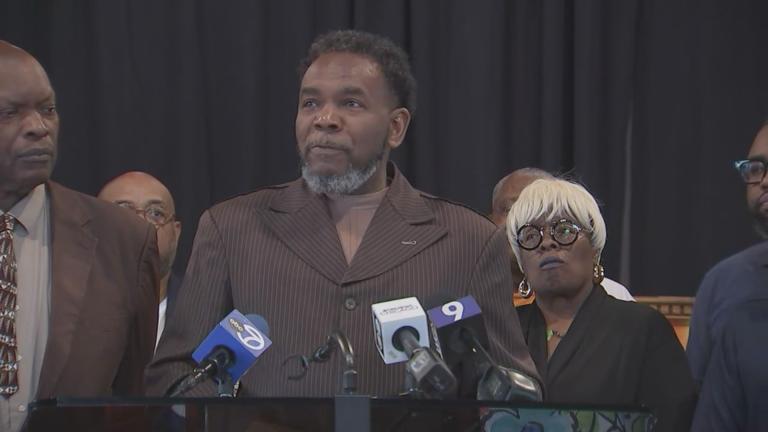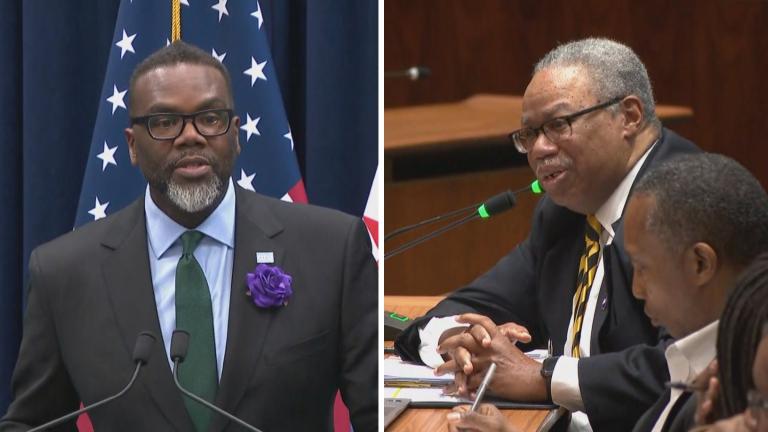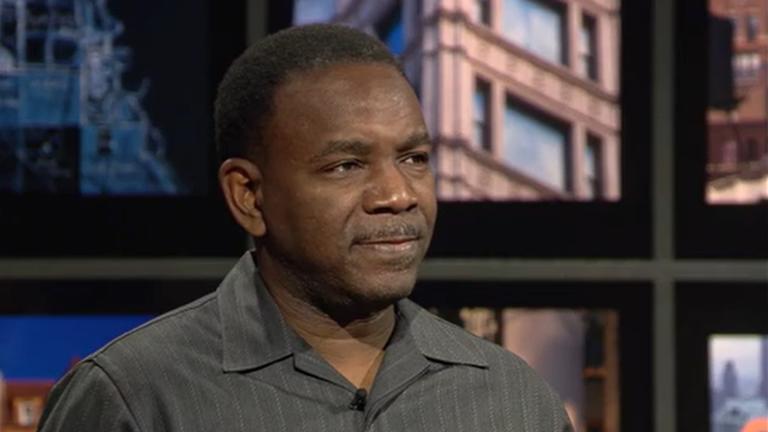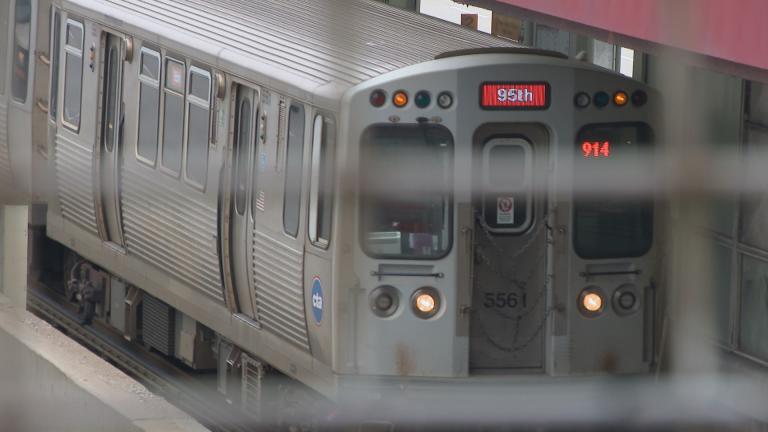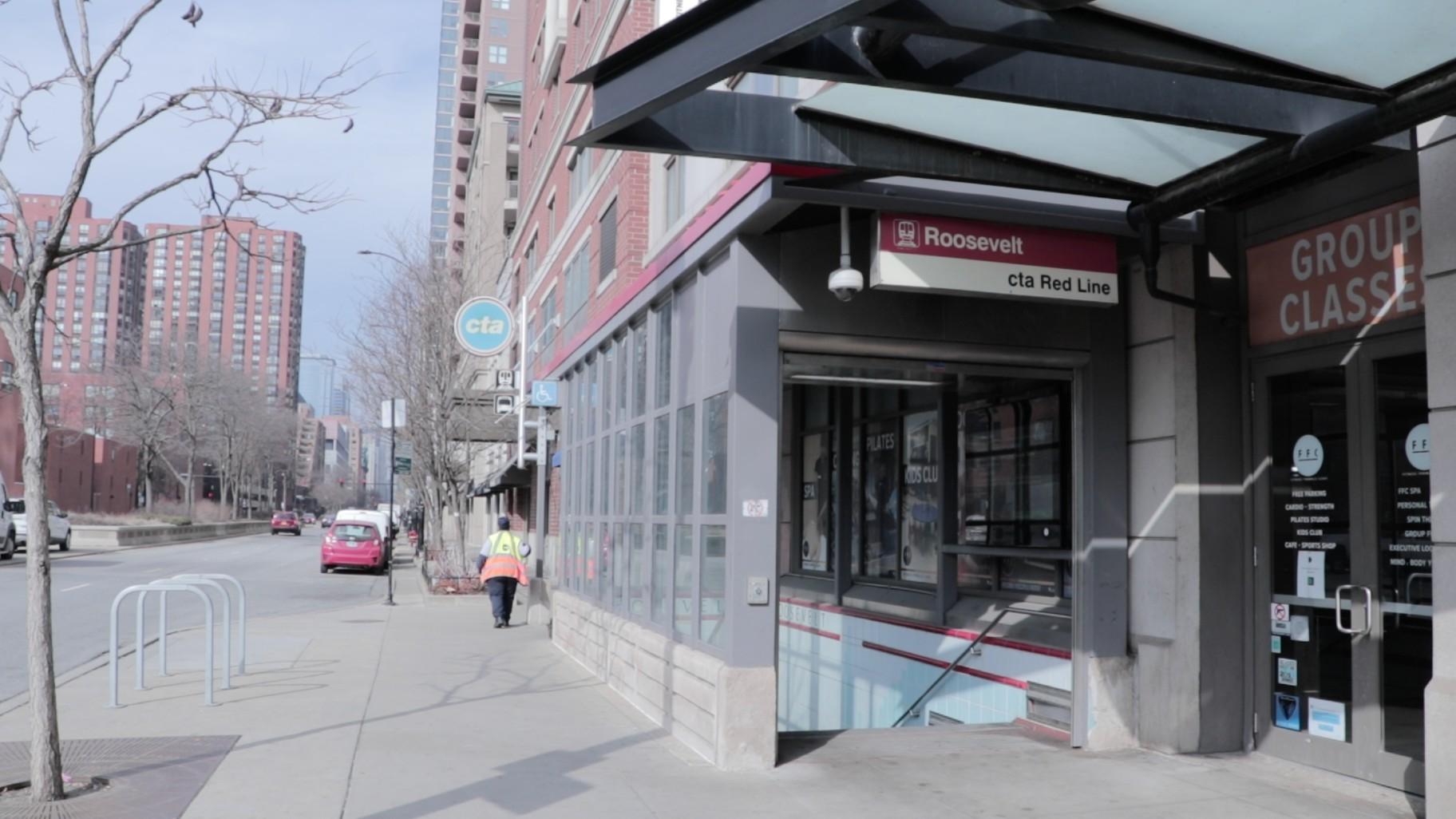 The Roosevelt Red Line station is pictured in a file photo. (Nicole Cardos / WTTW News)
The Roosevelt Red Line station is pictured in a file photo. (Nicole Cardos / WTTW News)
The Chicago region would face devastating consequences for residents without its public transportation system, including a huge spike in pollution, a major drop in economic activity and millions of canceled activities, according to a new study.
The report was conducted by MIT and Argonne National Laboratory researchers and presented at a Chicago Transit Authority board of directors meeting on Wednesday. CTA President Dorval Carter said the agency will use the report as “a major foundational point for our overall advocacy of the transit system,” an effort to get Springfield lawmakers to address the fiscal cliff facing transit when billions in federal COVID-19 relief funding runs dry.
But Carter didn’t address another huge measure introduced in the General Assembly last week that would see CTA, Metra and Pace merged into a single transit agency replacing the current Regional Transportation Authority.
“We always talk about the CTA being an economic engine in the Northeast region of the state, but I think this (report) is the first time we’ve been able to articulate the real numbers behind that, but also the real impact that a lack of public transit has, particularly on those who are most vulnerable,” Carter said. “That’s an important part of our message for why the funding we’re asking for is critical.”
While board chair Lester Barclay and one public commenter briefly mentioned the proposed governance reforms, Carter kept mum on the issue and focused his comments on funding and the MIT/Argonne report.
“We’ll be incorporating this into our broader strategy down in Springfield as we continue the conversation around the fiscal cliff,” he said.
Carter’s focus echoes previous comments from the CTA and its fellow transit agencies since the idea of a merger was floated. Proponents of the merger bill have also said they want to see $1.5 billion in additional annual funding for public transportation, but that more money must come with reforms.
CTA, Metra and Pace face an expected budget shortfall of $730 million in early 2026, the result of sluggish ridership numbers that are still well off their pre-pandemic peak. So far, the CTA has used about 56% of its COVID relief cash.
The MIT/Argonne report modeled a hypothetical scenario in which public transit disappeared from the region entirely. It found that travel times would increase by 35%, 2 million trips each day would be canceled, and the region would lose $35 billion in annual direct economic activity – to say nothing of ripple effects from lost jobs, shuttered businesses and higher cost of living.
It would also have a public health impact, the report’s authors said, in the form of increased vehicle crashes and a huge increase in PM2.5 particulate matter emitted by vehicles, pollution that increases the risk of respiratory ailments, heart attacks, and strokes. And it would have the greatest impact on low-income residents and people who use the CTA for so-called “care” trips like school pickup and dropoff or helping an elderly relative get to a medical appointment.
The agency also touted its just-released chatbot, which allows passengers to get information on travel times and report incidents. So far, staff said that frontline employees have been able to respond quickly to a damaged bus shelter and leaking fluid at a CTA facility. A significant number of complaints in the early days of the chatbot’s release have been for passengers smoking on board.
While the chatbot is still in its early stages, board members, staff, and Carter expressed excitement about adding new capabilities in the future as part of an effort to make the CTA more “proactive and personal.” Ideas floated include replying to customers to alert them their complaint has been resolved and gathering demographic or location information about people using the chatbot.
Safety Efforts on CTA
Another key way the CTA has been trying to draw passengers back to the system is by tackling security concerns over crime and unruly conduct that some riders say have kept them away.
While CTA’s year-to-date revenue has been above expectations and its expenses kept under budget, the agency has been consistently spending more than planned on security services.
Jeremy Fine, CTA’s chief financial officer, told board members that additional security services have been driving about $2.5 million more security spending each month than budgeted. If the trend continues, he said that’ll place the agency’s 2024 security costs at about $90 million, rather than the $65 million or so budgeted. Still, Fine told the board the security has been “cost effective” compared to industry peers.
“You’re absolutely right to notice the dramatic increase,” Carter told board members who raised the issue, saying the costs have come both from overnight security and a new contract with a K-9 security firm. That K-9 contract was on an emergency basis, Carter said, which should bring costs down once a regular contract is in place.
But Carter said both those efforts as well as additional coordination with the Chicago Police Department have been showing results.
“Crime is down on CTA dramatically in some areas,” he said. “We’re feeling confident that strategy is working, but it’s working at a price.”
FOIA Request Response Time
The board also approved several contracts on Wednesday, including one for web-based management software and support services to handle Freedom of Information Act Requests. Those public record requests have been a sore subject for some transit advocates, who have slammed the agency for its sluggish response that regularly falls well outside the legal deadlines established by state law.
WTTW News has previously reported that an analysis of FOIA response data by transit advocate Nik Hunder found that, between Jan. 1 and Nov. 30 of last year, the CTA answered just 94 of 880 FOIA requests within 10 days – meaning just over 10% came within the legally mandated time frame. The median response time was 23 business days.
Hunder, who spoke during the public comment period of Wednesday’s meeting, chided the CTA for failing to respond in a timely manner to numerous issues raised by him and others, including FOIA requests. He also called on Carter to address the on-the-job death of bus operator Antia Lyons, who Block Club Chicago reported was unconscious behind the wheel for nearly an hour before CTA staff found her. Carter did not address Lyons’ death.
Appointments
Wednesday also marked the first board meeting for longtime urban planner and transit advocate Roberto Requejo, who recently stepped down as executive director of the equitable transit-oriented development nonprofit Elevated Chicago.
Requejo is Mayor Brandon Johnson’s first appointee to the CTA board.
Johnson has come under fire for his second appointee to the board, Pastor Michael Eaddy, who has no experience in transit. And the same day Requejo was welcomed to the CTA Board, Chicago alderpeople also advanced Johnson’s nomination to the RTA board — the Rev. Ira Acree, another West Side pastor with no transit experience.
Acree was asked by Ald. Andre Vasquez (40th Ward), who had already voiced his displeasure with the nomination and his intent to vote no, whether he arrived to the city council’s Transportation Committee meeting via public transit.
“I don’t have to take the CTA,” Acree replied. “I’m fortunate enough to have a car.”
Contact Nick Blumberg: [email protected] | (773) 509-5434 | @ndblumberg

